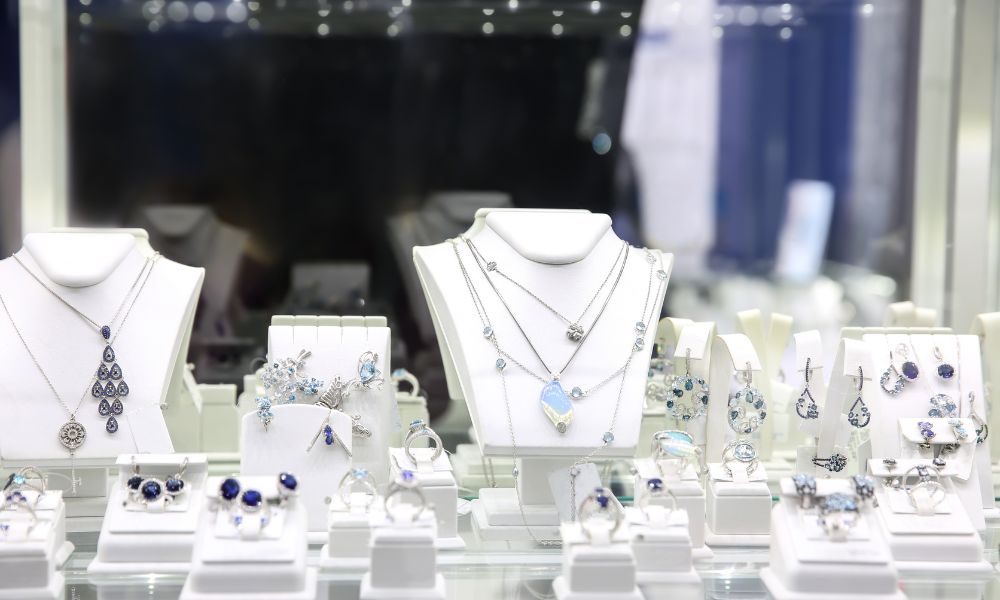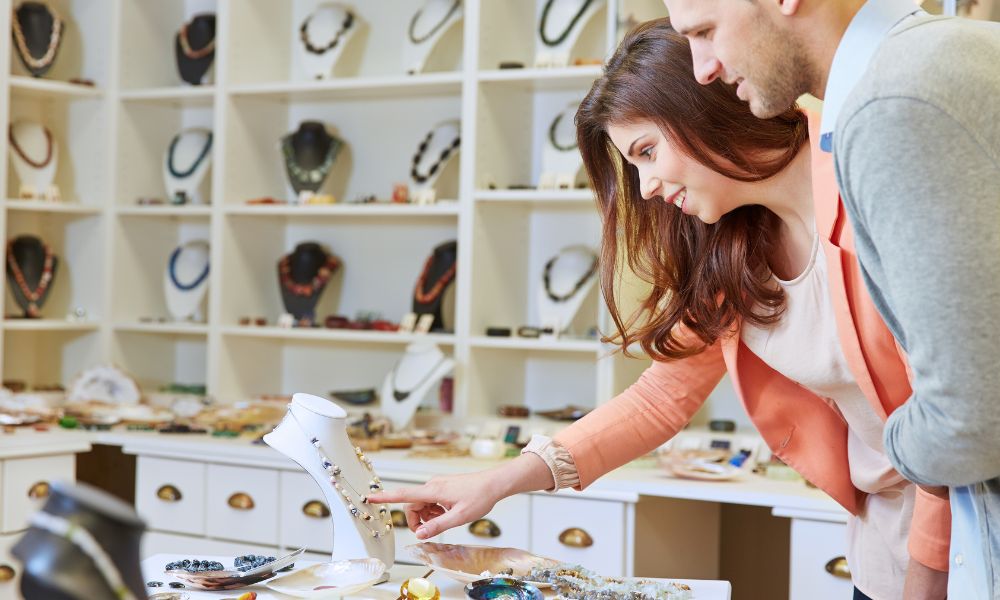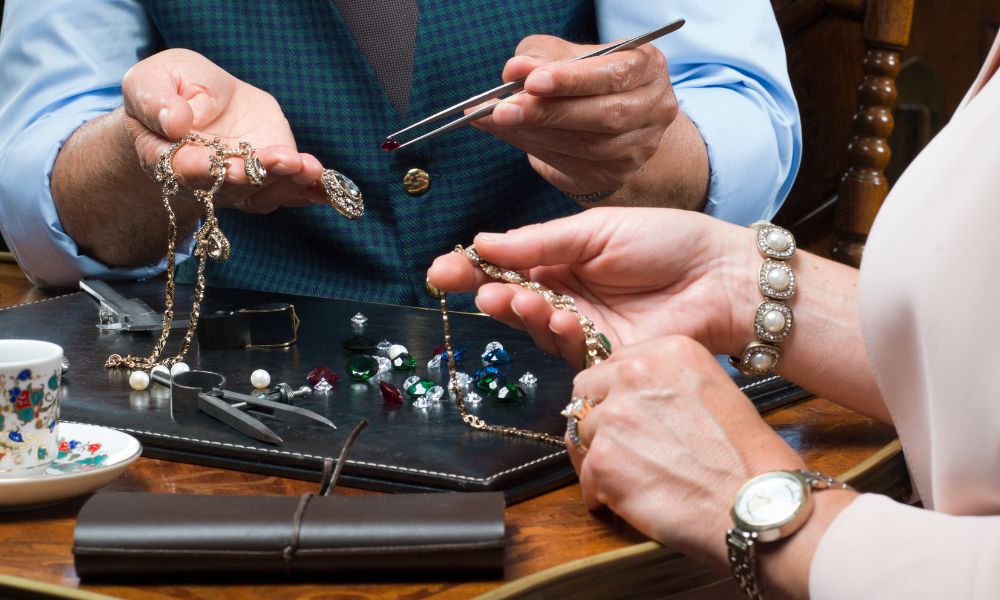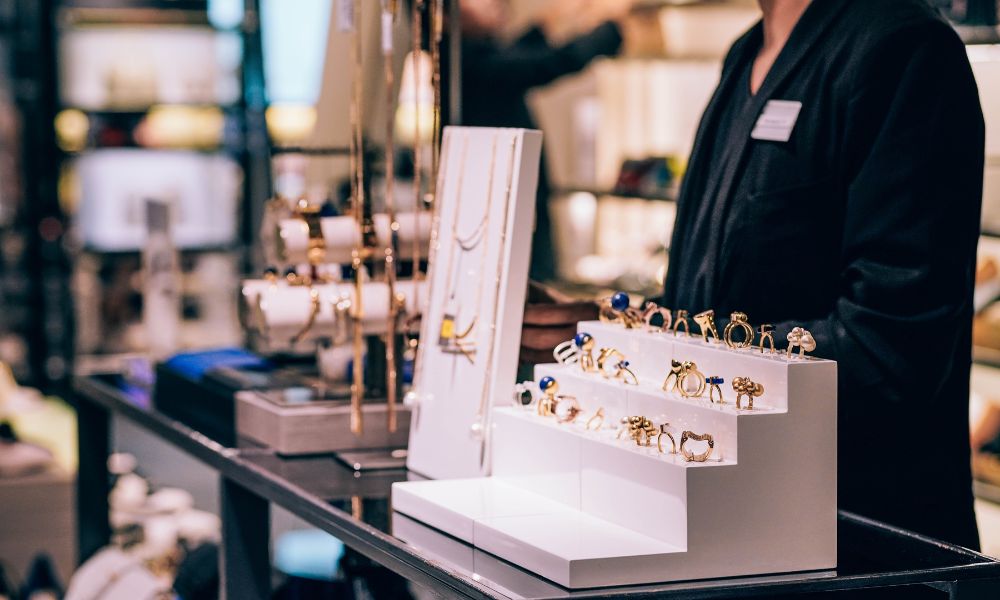When it comes to buying diamond jewelry, where you choose to shop can significantly impact your overall purchasing experience. From the quality of the diamonds to the service provided by the store, there are many factors to consider. Let’s dive into some essential tips to help you select a diamond jewelry store that aligns with your needs and expectations.
Knowledge and Expertise
Choose a store with knowledgeable and experienced staff. They should be able to guide you through your purchase, answer all your questions about diamond quality, cuts, shapes, and pricing.
- Look for stores with certified gemologists on staff or highly trained salespeople.
- Avoid stores where associates cannot provide detailed information about their product offerings or seem more focused on making a sale than helping you find what you need.
Selection Variety
A broad selection of diamond jewelry gives you better chances of finding pieces that suit your taste and budget.
- Stores should offer an array of styles, cuts, and colors.
- Look out for stores that carry both contemporary designs as well as traditional styles.
Customer Service
Quality customer service is crucial in any industry; however, when buying something as significant as diamond jewelry, it becomes even more important.
- The store should make their customers feel valued by offering personalized shopping experiences.
- A good diamond jeweler will listen to your preferences, offer suggestions based on your criteria and work within your budget.
Reputation and Reviews
The reputation of a diamond jewelry store can give you insights into their reliability and integrity.
- Check out online reviews or ask friends for recommendations before deciding which store to visit.
- Consider stores that have been in business for several years—they’re likely doing something right to have survived in such a competitive market.
Transparent Pricing
Diamond jewelry is a major investment, so understanding the pricing structure is essential.
- Look for stores with transparent pricing, where they clearly explain what determines the cost of each piece.
- Avoid stores that are vague about their pricing or seem to charge much lower or higher prices than other retailers for similar pieces.
Selecting the right diamond jewelry store can turn the daunting task of buying diamonds into an enjoyable and satisfying experience. Take your time in doing your research, compare different stores and always trust your gut feeling. Remember, the right store will not only provide you with beautiful jewelry but also peace of mind knowing you’ve made a wise investment.

Ensuring Value for Money: Key Considerations when Choosing a Diamond Jewelry Store in Santa Ana, CA
Mimi’s Jewelry is a top jewelry store in Santa Ana: https://mimisjewelryinc.com/santa-ana-ca-jewelers-store
Making a purchase from a diamond jewelry store is often a significant investment, both financially and emotionally. As such, it becomes crucial to ensure that the chosen store not only provides beautiful jewelry but also offers real value for your money. Below are key considerations when seeking to make the most of your diamond jewelry shopping experience.
1. Expertise and Knowledge of Staff
An experienced and knowledgeable staff can be an invaluable resource when you’re buying diamond jewelry. They can provide detailed information about different types of diamonds, their cuts, clarity, carat size, and color. They should also be able to guide you on how to care for your diamond pieces.
2. Quality of Diamonds
The quality of diamonds offered by the store is paramount. Look out for stores that stock GIA certified diamonds or those certified by other reputable grading labs like AGS or EGL. These certifications are an assurance that the diamonds meet certain quality standards.
3. Range and Variety
The range and variety offered by the jewelry store are important factors that contribute to value for money. A wider selection gives you more options to choose from, allowing you to find something that suits your taste and budget precisely.
4. Pricing
Pricing directly impacts the value for money you get from a diamond jewelry store. You’ll want to do some comparison shopping before making a purchase decision. Some stores may offer competitive prices or exclusive discounts on certain pieces.
5. Custom Service Options
Custom service options such as personalized designs or resizing services can add significant value to your shopping experience at a diamond jewelry store.
| Available Service | Why it Adds Value |
| Personalized Design | Allows for unique pieces tailored specifically to customer’s desires |
| Resizing Services | Ensures perfect fit which enhances comfort and wearability |
| Repair Services | Increase the lifespan of jewelry and maintains its beauty |
6. Store Reputation
Last but not least, it’s worth taking into consideration the reputation of the diamond jewelry store. A well-established store with a track record of satisfied customers is likely to offer good value for money.
In summary, while making a choice about which diamond jewelry store to shop from, assess their staff expertise, quality and variety of diamonds, pricing strategy, custom service options, and overall reputation. These factors will ensure you get the best possible value for your money.

Understanding the Importance of Stock Availability in Diamond Jewelry Stores in Santa Ana
When shopping for diamond jewelry, you want to ensure that you have a wide range of options to choose from. This is where stock availability comes into play. The importance of stock availability in diamond jewelry stores cannot be overstated. It can markedly influence your shopping experience and the quality of the product you eventually buy.
Having an extensive stock gives a store a competitive edge over its competitors. It implies that they have a diverse collection of diamonds and other precious gems, thus catering to different tastes and preferences. If a store has limited stock, it might not meet your specific needs or preferences. Therefore, before you set foot in any diamond jewelry store, it’s crucial to inquire about their inventory.
Here are some reasons why stock availability is vital when choosing a diamond jewelry store:
- Variety and Choice: An extensive inventory means more options to choose from. You can browse through different styles, cuts, sizes, colors, and grades of diamonds until you find one that suits your taste and budget.
- Flexibility: When a store has a wide range of products available, it’s more likely they can accommodate unique requests or custom designs if you have something particular in mind.
- Quality Assurance: A large assortment suggests that the store values quality as much as quantity. They source from different suppliers, therefore giving customers access to high-quality diamonds from around the world.
- Competitive Pricing: More stock often equates to more competitive pricing as the business can afford to offer discounts on various items due to economies of scale.
With these points in mind, it’s clear why understanding the importance of inventory availability is essential when selecting a diamond jewelry store for your needs.
However, while having numerous choices is beneficial, it could also be overwhelming for some shoppers — especially those with little knowledge about diamonds or jewelry in general. Hence, apart from examining their inventory size, another aspect to watch out for would be the store’s customer service quality. Knowledgeable and supportive salespersons can help guide you through their selection, explain features and differences between diamonds, and ultimately lead you towards making an informed purchase.
Remember that when it comes to buying diamond jewelry, the experience should be as remarkable as the product itself. Therefore, choose a store that not only has a broad collection but also one that offers excellent service, sound advice, and competitive rates. With these factors considered, you’re on your way to finding a diamond that’s just as unique as your personal taste.
The Role of Designer Brands in Elevating Your Santa Ana, CA Diamond Jewelry Store Experience
In the world of diamond jewelry, designer brands hold a pivotal role as they often symbolize quality, craftsmanship, and value. The presence of these esteemed brands in a diamond jewelry store can significantly enhance your shopping experience. Find out about Jewelers in Santa Ana.
One of the primary reasons why designer brands elevate your experience is due to their reputation for delivering high-quality products. Designer jewelry pieces are usually crafted with meticulous attention to detail, using top-notch materials including premium diamonds and precious metals. As such, when you purchase from a designer brand, you can be assured of the product’s quality and durability.
- Quality Assurance: Designer brands go through rigorous quality control checks before their pieces reach the store’s display case. They adhere to stringent standards for diamond grading, ensuring that each piece meets or exceeds industry benchmarks.
- Unique Designs: Designer brands are often at the forefront of trends in the jewelry industry. They continually innovate and create unique designs that stand out from mass-produced items. This means that when you choose a designer piece, you’re not simply buying jewelry; you’re investing in a work of art.
- Resale Value: Jewelry from renowned designers tends to hold its value well over time. This is particularly true for iconic collections or limited edition pieces which may even appreciate in value.
Now, let us look into some renowned jewelry designers whose presence can enhance your diamond jewelry shopping experience:
- Tiffany & Co.: Known for their signature blue boxes, Tiffany & Co. has been synonymous with luxury since 1837. Their iconic designs such as the Tiffany® Setting have revolutionized the diamond industry.
- Cartier: Cartier is famous for its romantic history and timeless designs like the Love bracelet and Panthère de Cartier collection.
- Harry Winston: Often referred to as ‘The King of Diamonds’, Harry Winston has been adorning Hollywood royalty since 1932. The brand is known for sourcing some of the world’s most famous diamonds.
- Bvlgari: Bvlgari is an Italian luxury brand known for its bold and glamorous designs. Their Serpenti collection is one of their most iconic designs.
| Designer Brand | Iconic Collection |
| Tiffany & Co. | Tiffany® Setting |
| Cartier | Love Bracelet |
| Harry Winston | Winston Cluster |
| Bvlgari | Serpenti |
In summary, the presence of designer brands in a diamond jewelry store serves as a marker of quality assurance, offers access to unique and innovative designs, and ensures good resale value for your investment. Therefore, when selecting a diamond jewelry store, consider the range of designer brands they carry as it can greatly enhance your overall shopping experience.
Comprehensive Guide on Policies to Look Out For When Choosing a Diamond Jewelry Store
When selecting a diamond jewelry store for your precious purchase, it is essential to be aware of the policies of the store. These policies can have a significant impact on your shopping experience and the value you get for your money. A transparent and consumer-friendly policy setup not only fortifies trust between you and the store but also ensures that you can shop with confidence. Here are some key policies to look out for when choosing a diamond jewelry store:
Return Policy
The return policy is arguably one of the most crucial policies to consider. It details under what conditions and within what timeframe you can return purchased items. Some stores may allow returns only within a specified period, while others might permit returns anytime, as long as the product is in its original condition.
Guarantee Policy
A guarantee policy assures you that should the piece of jewelry have any manufacturing defect or damage, the store will repair or replace it free of charge. Make sure to understand what’s covered under this policy; for instance, does it cover only manufacturing defects or does it include damages incurred after purchase as well?
Exchange Policy
An exchange policy allows customers to trade in their purchased item for another item at an equal or lesser value. This is particularly useful if you change your mind about a piece after buying it.
Repair and Service Policy
Jewelry items may require servicing or repairs over time due to wear and tear. Understanding a store’s repair and service policy is crucial as services can range from cleaning to resizing, prong tightening, stone replacement etc.
Shipping Policy
If you’re buying online, pay attention to the shipping policy. It should clearly state how much you’ll be charged for shipping, where they ship (worldwide or just specific locations), expected delivery times and who will cover costs related to customs duties or taxes.
Keep these policies in mind when choosing where to purchase your diamond jewelry. Also, it is always better to ask for a written copy of these policies for future reference. A store with clear, detailed and consumer-friendly policies is a good indicator that they value their customers and are willing to go the extra mile to ensure their satisfaction.
- Exploring the Future of The Jewellery Industry: A Comprehensive Analysis of Trends and Insights
- Establishing the Importance of a Positive Reputation in a Jewelry Store
- Key Elements to Look for in a Trusted Jewelry Store
- Essential Tips for Selecting the Right Diamond Jewelry Store
- Comprehensive Checklist: Ten Things You Must Know Before Buying Jewelry





